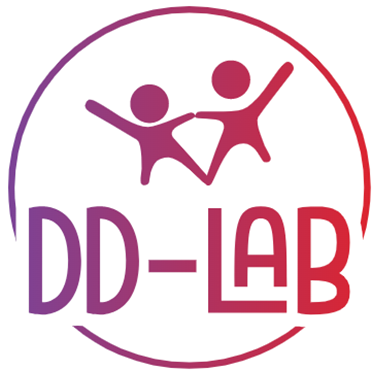Developmental Coordination Disorder
Research Area
Developmental Coordination Disorder
”I had a hard time at school, I was bad at everything, with no obvious talent. I can't tie my sneakers and I have terrible handwriting. As a child I suffered from a lack of self-confidence because I thought I was small. Partly because of my dyspraxia, I wanted to become an actor.
Daniel Radcliffe

In this research area, we aim to deepen the understanding of Developmental Coordination Disorder (DCD), a neurodevelopmental condition that primarily hinders the acquisition and execution of motor skills. DCD impacts children and adolescents in their daily functioning, often leading to difficulties in fine and gross motor coordination, academic performance, and social participation.
Our goal is to contribute to the scientific knowledge of this disorder by studying the neuropsychological, social and motor profile of individuals with DCD. We conduct research that examines motor coordination, cognitive functioning, the acquisition of school learning, and socio-emotional aspects, using a multi-method approach that includes standardized assessments, neuropsychological testing, behavioral observations, and input from families and educators.
Our findings aim to contribute to the understanding of the difficulties and the strenghts of these children, to inform the development of evidence-based individualized intervention programs that can enhance their quality of life and participation.
We investigate a range of topics including:
- Cognitive and visuospatial functioning: we study an array of cognitive domains, among which visuospatial skills cover a predominant role in our Lab, aiming to explore the specific cognitive features of DCD in children and adolescents. Specifically, we set-up and are currently testing a digital battery to assess spatial abilities in developmental populations (aged 8 – 16 years old).
- Motor and coordination difficulties, also encompassing handwriting abilities: our research is focused on the kinematic (vs. static) features of handwriting, that we measure combining the adaptation of standardized tests with innovative digital assessment. Around this, we aim to explore the link between different motor abilities and handwriting proficiency.
- Emotional and social abilities: we are exploring the study of the interplay between the DCD profile and social functioning by using a multi-level approach consisting of both direct testing and parent-reports. As difficulties in the socio-relational domain may be related to different underlying profiles, we aim to shed broader light to the specificities of the DCD profile.
- Neurodevelopmental profiles and comorbidities: the vast majority of our studies rely on cross-profile comparisons, given the well-documented overlap among neurodevelopmental disorders. Therefore, we not only focus on the core features of each profile, but also strive to consider the full array, ultimately aiming to highlight both similarities and differences, thereby enhancing understanding and clinical characterisation.
LEARN MORE ABOUT DEVELOPMENTAL COORDINATION DISORDER
Explore other recommended sources to better understand Developmental Coordination Disorder (DCD):
https://movementmattersuk.org/ – https://edu.eacd.org/clinical-practice-recommendations-dcd
Publications
Cardillo, R., Orefice, C., Leanza, N., Mammarella, I. C., (2025).
Motor and visuospatial processing profile in a cross-conditions study: A comparison between developmental coordination disorder and nonverbal learning disability. Research in Developmental Disabilities, 158, 104922.
Orefice C, Cardillo R, Lonciari I, Zoccante L, Mammarella IC. (2024).
“Picture this from there”: spatial perspective-taking in developmental visuospatial disorder and developmental coordination disorder. Frontiers in Psychology. 15, 1349851.




